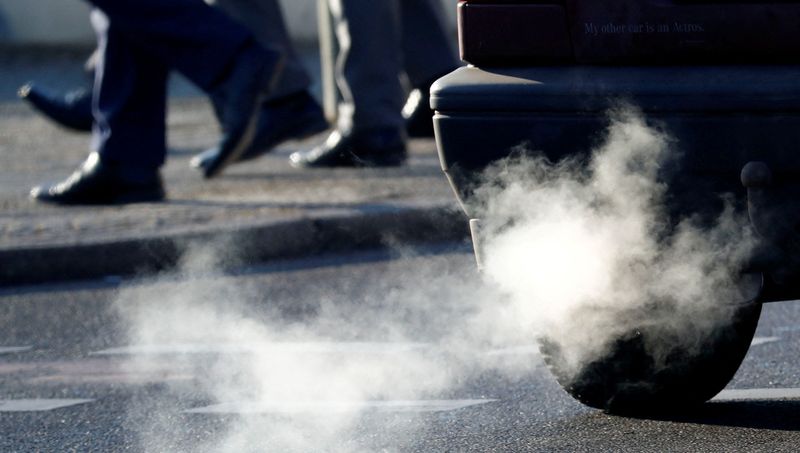By Robert Muller and Kate Abnett
PRAGUE/BRUSSELS (Reuters) -Transport ministers from the Czech Republic, Germany, Italy, Poland, Portugal, Romania, Hungary and Slovakia on Monday discussed their push to change proposed European Union vehicle emissions limits.
The proposed Euro 7 law, which EU countries and lawmakers will start negotiating this year, would tighten limits on health-harming pollutants, including nitrogen oxides. The EU has said the health benefits would far outweigh the costs.
But countries, including the Czech Republic, oppose the proposed rules which they say are burdensome for industry. Most have big car-making sectors.
An EU official said the ministers had discussed the law's "unrealistic" deadlines and issues with equipment to enforce it.
"Our effort is, in the area of Euro 7, to make those conditions really realistic, to make them achievable," Czech Transport Minister Martin Kupka said in a telephone interview following the meeting in Strasbourg, which he convened.
The Czech Republic said the countries had reservations on the short period for adoption of the norm, which under proposals should come into force in mid-2025 for cars.
It has proposed a four-year period for the norm to take effect, along with some technical changes, to give industry time to prepare and boost technological measures.
"If we are really serious about trying to bring Europe to greater carbon neutrality, I think that really means bringing in technologically realistic measures," Kupka said.
The countries also discussed a separate row over the bloc's 2035 deadline to phase out CO2 emitting cars, which would effectively make it impossible to sell new combustion engine cars after 2035.
The CO2 law, the EU's main tool to speed up Europe's shift to electric vehicles, was put on hold this month after last-minute opposition from Germany. That surprised policymakers in Brussels and other member states, since EU countries and the European Parliament had already agreed a deal on the law last year.
Germany, backed by countries including Italy and the Czech Republic, wants clearer assurances that new cars with internal combustion engines can still be sold after 2035, if they run on CO2-neutral fuels.
Other countries have different reservations. Poland, for example, has said its opposition is "much more fundamental" than the types of fuels that can be used after 2035, and has said the proposal would make combustion engines more expensive for consumers.

The EU says the 2035 date is crucial because the average lifespan of new cars is 15 years – so a later ban would stop the EU reaching net zero emissions by 2050, the global milestone scientists say would avert disastrous climate change. Transport accounts for around a quarter of EU emissions.
Parts of Europe's car industry are also lobbying to weaken the EU law. Porsche (ETR:P911_p) CEO Oliver Blume said on Monday in his view Berlin was "taking the appropriate steps" to ensure e-fuels can be used in new combustion engine cars after 2035.